The new Mach 5.5 Carbon is Pivot’s solution for riders fed up with fads and finely diced market segments. It’s not cheap, but it’s nearly everything one could want in a trail bike.
Pivot Mach 5.5 Carbon Highlights
- Designed around 27.5in wheels
- 140mm rear, 160mm front travel
- Equipped with 27.5×2.6in Maxxis Wide Trail tires
- Claimed frame weight of 5.2lb / 2.35kg (with Float DPS shock)
- Frame pricing: $3,099 with shock
- Complete bikes: $4,899 to $10,199
- Available now
Reinventing a classic
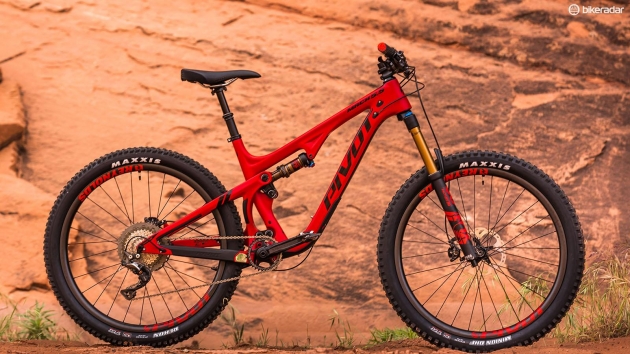
Chris Cocalis launched Pivot Cycles in 2007 with two models: the racy Mach 4 and the trail-oriented Mach 5. In 2011, the Mach 5 evolved into the Mach 5.7, Pivot’s first carbon model.
While long-travel 29ers and enduro rigs may be the current sweethearts of the cycling industry, the bread and butter of the market is still the well-rounded trail bike.
The Mach 5.5 Carbon is certainly up to the challenge of enduro racing, but that’s not what drove its development.
“We set out to design the quintessential trail bike,” said Cocalis.
Pivot’s new trail bike has 140mm of rear suspension travel supplied by Dave Weagle’s dw-link suspension design. Pivot intended to develop the 5.5 around a 150mm suspension fork, but after testing it with a 160mm Fox 36, Cocalis opted to go with the longer stroke fork.
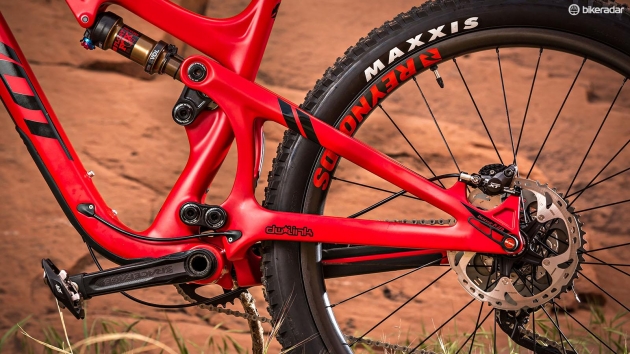
In keeping with current trends, the reach across the five frame sizes is longer than previous versions, and the head angle sits at 66.5 degrees. Unlike many competitors, the seat tube isn’t drastically hiked forward. The 73.5-degree seat tube angle still feels spot-on while climbing — the fact the rear suspension doesn’t squat under power allows Pivot to keep this traditional seat tube angle.
It feels like we’re on the cusp of a settling on a new tire size that will become the norm for most trail bikes — 2.5 to 2.6in tires paired with rims that range from 30 to 35mm are poised to become the new normal.
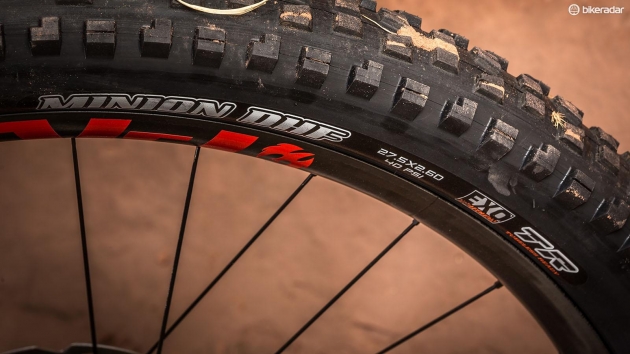
“This isn’t a 27.5 plus bike; it’s not a 29 minus bike. It’s a 27.5 bike,” the Pivot founder mused about the current tire-sizing fracas.
According to Cocalis, the Mach 5.5 will ride well with tires ranging from 2.25 to 2.6 inches in width.
All build levels of the Mach 5.5 roll on 27.5×2.6in Maxxis Wide Trail tires with a DHF up front and a Rekon in the rear.
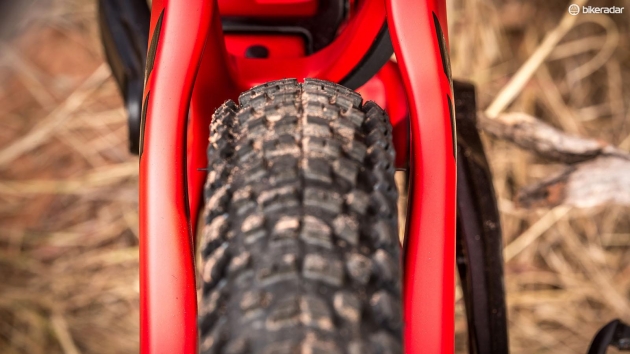
Pivot has a reputation for integrating forward-looking features into its frames. It was one of the first companies to integrate Di2 routing for Shimano’s electronic drivetrains. The company was willing to go out on a limb to create the 157x12mm Super Boost Plus axle system to reach the tire clearance and stiffness numbers the company sought for the Switchblade.
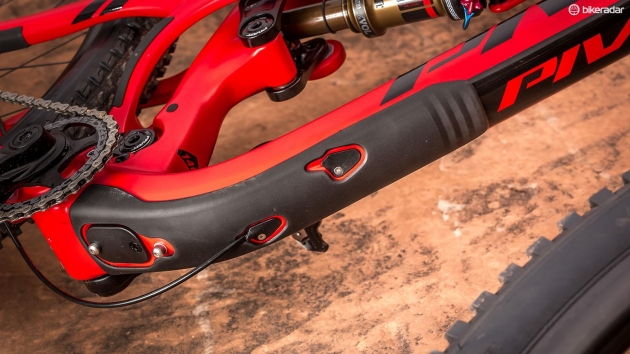
The Mach 5.5 Carbon makes due with the 148x12mm thru axle standard but includes a new frame feature that hints at a more wired future. There’s a port above the forward shock mount and another hidden on the inside of the non-drive chainstay that will allow the Mach 5.5 Carbon to be compatible with the Fox Live Valve system.
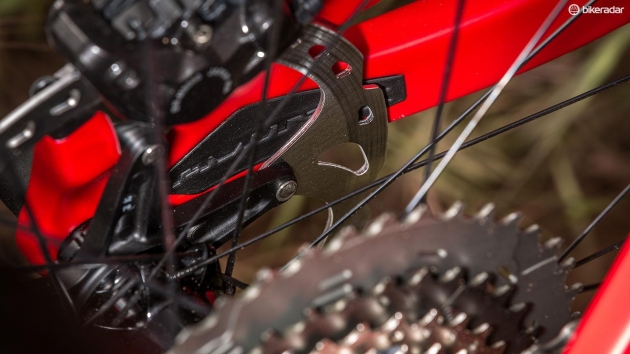
According to Mark Jordan, Fox’s marketing manager, there’s no exact launch date for this terrain-sensing suspension system. “As we develop it, we keep finding and integrating new functions,” Jordan said of the system’s lengthy development process.
Not all of the Mach 5.5’s frame features are aimed at future advancements. Pivot also included a removable front derailleur mount for riders still clutching onto front derailleurs.
Build details
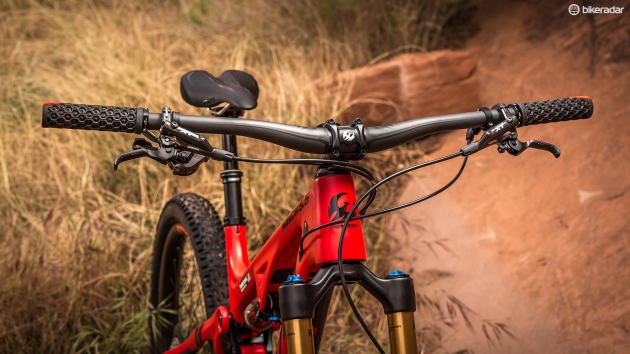
Before delving into the bike itself, let’s take a quick look at some of the key components.
The Mach 5.5 Carbon I tested was equipped with a 1×11 Shimano XT group with XT brakes with 180mm rotors.
Fox supplies the suspension with a 36 Factory fork and Float Factory DPS EVOL shock. The medium 5.5 Carbon I tested also comes with a 125mm Fox Transfer dropper seatpost.
Pivot’s house brand Phoenix components are used for the carbon handlebar and stem.
This 760mm handlebar is newsworthy for two reasons. First off, this was the most forgiving 35mm diameter bar I’ve ridden to date. The second feature of Pivot’s handlebar that makes it stand out is the use of WTB’s PadLoc system to keep the grips from slipping while adding a bit of cushion to the end of each grip. While there is a wide range of PadLoc compatible grips on the market, Pivot also makes a bar plug that will allow you to run standard grips with its mitered bars.
[Source”timesofindia”]
